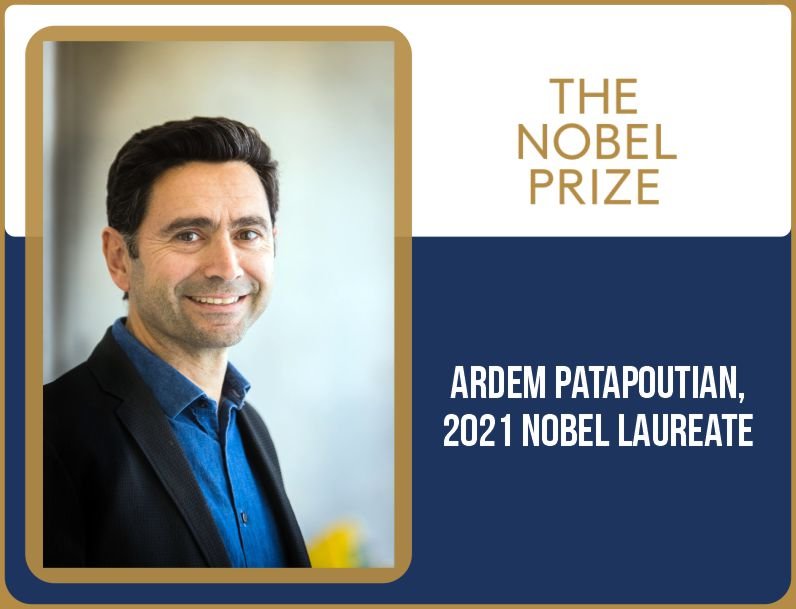
Lebanese-Armenian scientist Ardem Patapoutian is one of the two winners of the Nobel Prize in Physiology or Medicine for their discoveries of receptors for touch, heat and bodily movement.
Dr. Patapoutian, a professor of neuroscience at the Scripps Research Institute in La Jolla, California and a Howard Hughes Medical Institute investigator, discovered a new class of sensors that respond to mechanical stimuli in the skin and internal organs.
He was honored alongside David Julius, a UC San Francisco professor of physiology, who identified a sensor in the nerve endings of the skin that responds to heat.
“Our ability to sense heat, cold and touch is essential for survival and underpins our interaction with the world around us,” the Nobel Assembly wrote in a statement announcing the accolades. “The laureates identified critical missing links in our understanding of the complex interplay between our senses and the environment.”
Dr. Julius and his team used a key ingredient of chili peppers to identify the gene that makes skin cells capsaicin sensitive. This discovery was a major breakthrough that led the way for scientists to find additional temperature-sensing receptors.
Dr. Patapoutian and his team used a micropipette to poke individual cells and find the sensors that respond to mechanical stimuli such as touch and pressure. In further research, these sensory channels have been shown to regulate physiological processes including blood pressure, respiration and urinary bladder control.
In 1944, Joseph Erlanger and Herbert Gasser received the Nobel Prize in Physiology or Medicine for their discovery of the different types of sensory nerve fibers that react to distinct stimuli, such as painful touch. While scientists have since proven that people perceive changes in their surroundings through highly specialized neurons, a key question long remained unanswered: how are temperature and mechanical stimuli converted into electrical impulses in the nervous system?
“This really unlocks one of the secrets of nature,” secretary-general of the Nobel Assembly Thomas Perlmann said in announcing the winners. “It’s actually something that is crucial for our survival, so it’s a very important and profound discovery.”
The pair’s findings also have astonishing medical implications, as they are already being used to develop treatments for a wide range of disease conditions, such as chronic back pain, arthritis and migraines.
Dr. Patapoutian said that his phone was on ‘do not disturb’ when he received the call from Perlmann, who eventually reached his 92-year-old father’s landline. He then called his son at around 2:30AM California time to deliver the news.
Shortly after, the committee released a photo of a delighted Dr. Patapoutian watching the Nobel Prize press conference from his bed with his son Luca: “A day to be thankful,” tweeted Dr. Patapoutian. “This country gave me a chance with a great education and support for basic research.”
A day to be thankful: this country gave me a chance with a great education and support for basic research. And for my labbies and collaborators for partnering with me. So glad @NancyAHong captured this “touching” moment. #PIEZO https://t.co/Os6ROB29RK
— Ardem Patapoutian (@ardemp) October 4, 2021
Dr. Patapoutian, who was born to an Armenian family in Beirut, Lebanon in 1967, came to the United States in 1986. “I fell in love with doing basic research. That changed the trajectory of my career,” he said in an interview with the New York Times. “In Lebanon, I didn’t even know about scientists as a career.”
The Nobel Prize laureates will each receive a gold medal and 10 million Swedish kronor ($1.14 million).



Be the first to comment